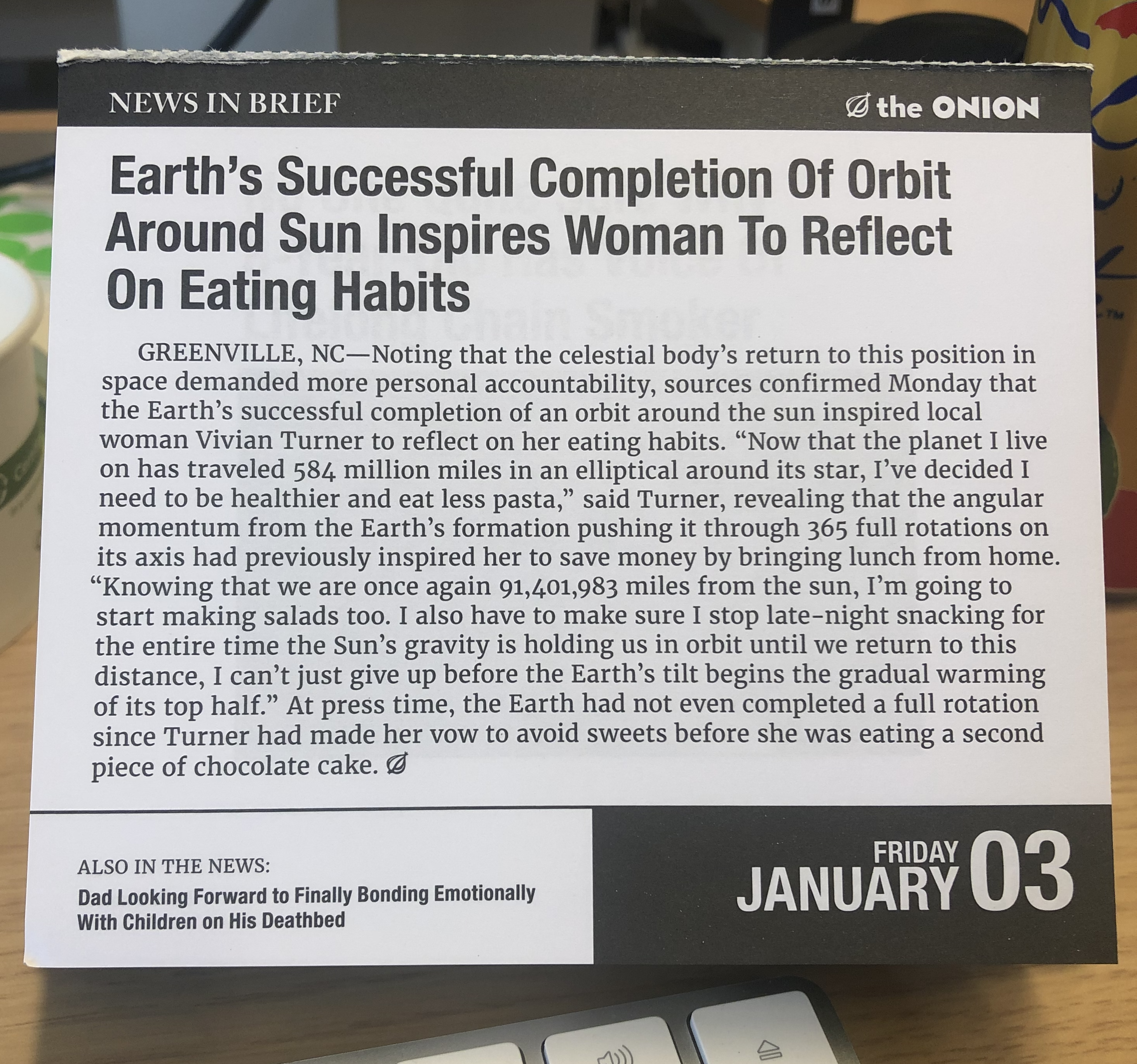To Infinity And Beyond
Happy new year!
It’s that time again when a large percentage of the population writes down resolutions for the year and promptly breaks them.
The new Onion calendar sitting on my desk had a great snippet summarizing the situation last week:

For some reason, I felt oddly apathetic toward this particular new year. While resolutions were something I embraced for many years, more often than not, I decide on my dreams at the moment of inception, not January 1st.
I’ve also been reflecting on whether or not new year’s resolutions are actually a useful practice. My biggest beef with them is that they are finite. Lose 10 pounds … then what? Save $250 more per pay check … then what?
Those frustrations were reinforced as I read Simon Sinek’s latest book, “The Infinite Game”, which highlights the flaws of finite goals.
The entire thesis of the book is illustrated through two talks Sinek gave: one at Microsoft and one at Apple. At Microsoft, employees spoke endlessly of beating their competition. At Apple, they had built a customer-obsessed mindset versus a competitor-centric one.
The contrast of approaches culminates in a car ride Sinek takes with an employee from Apple. Sinek shares that Microsoft had gifted him their new Zune music player. The design, he said, was incredible; potentially better than the Apple iPod (clearly the car ride was some time ago).
The Apple employee replies to Sinek, “I’m sure it is.”
This anecdote was, according to Sinek, a perfect demonstration of how Apple (and all their employees apparently) understand that business is an infinite game.
I have yet to decide what to make of Sinek’s book. However I found it hilarious that in the world of Infinite games, it’s easy to forget that somebody wrote a book about this exact concept 7 years ago. That author was unfortunately not as good at marketing 😂.
Despite this, I’d be masking the truth if I failed to acknowledge my love of Sinek’s premise. Success is indeed a marathon, hence the infinite game. Which brings me back to resolutions.
Are they all that wrong? Probably not. There’s nothing wrong with working to better ourselves. I always aspire to be better, perhaps too much! Yet if you are a continuous learner, I highly recommend James Clear’s writings on the subject. While he’s constantly churning out brilliant tweets, I’ll share a more recent one:
Aim to be great in 10 years.
Build health habits today that lead to a great body in 10 years.
Build social habits today that lead to great relationships in 10 years.
Build learning habits today that lead to great knowledge in 10 years.
Long-term thinking is a secret weapon.
I’d like to modify and simplify Clear’s tweet down to this: Build habits which enable you to maximize and appreciate each day, it will pay off. That’s going to be my motto for 2020. Don’t call it a resolution.
Happy New Years!
P.S. If you are looking for more New Year’s content, check out this great video by Casey Neistat.